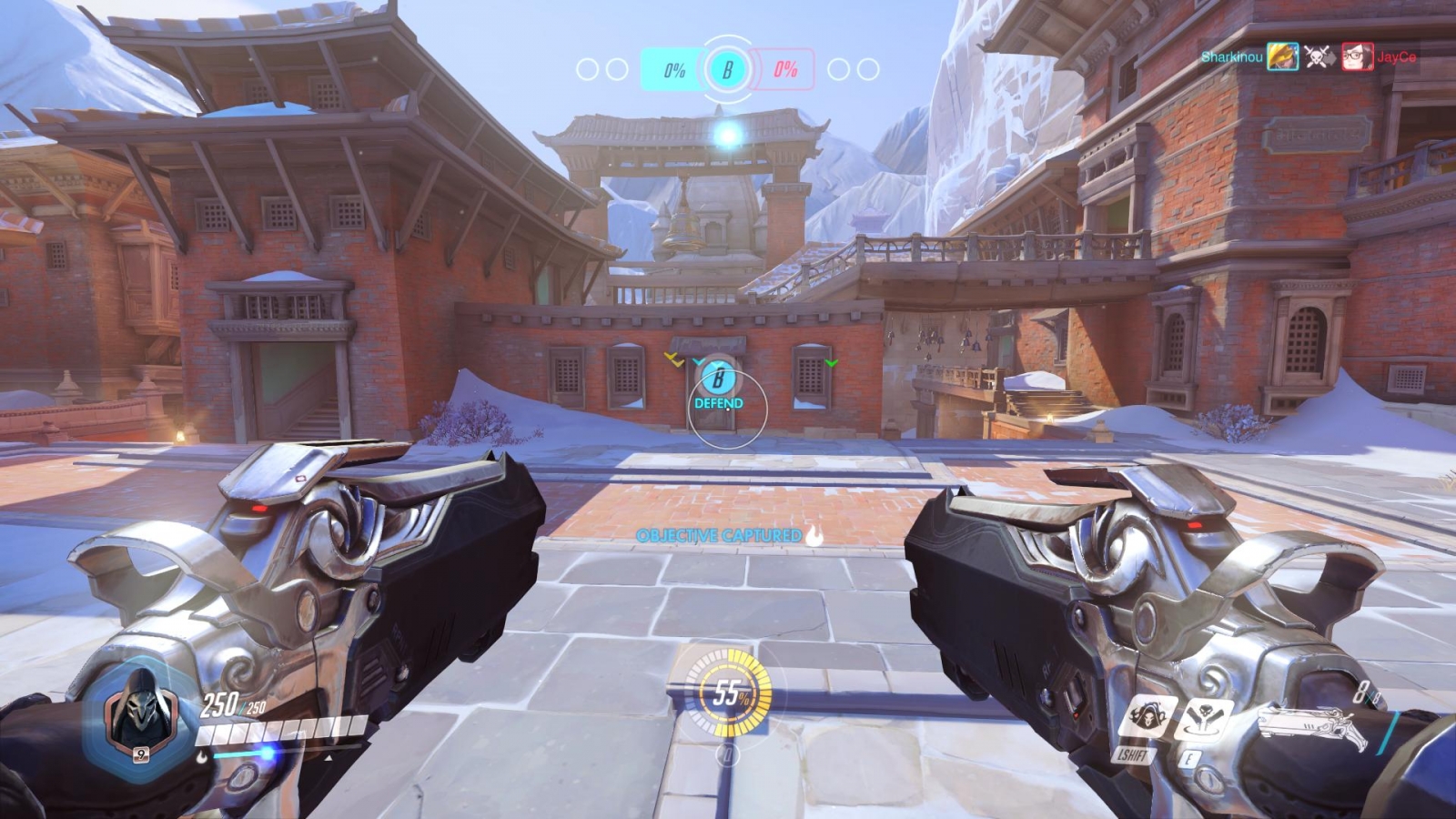Overwatch review: Blizzard's first new IP in twenty years is an instant classic
Blizzard does it again.
Overwatch
Platforms: PC (tested), PS4, Xbox One
Developer: Blizzard Entertainment
Publisher: Blizzard Entertainment
Release Date: Out Now
It's been a struggle to decide what I enjoy most about Overwatch, the latest title from Blizzard Entertainment and the studio's first new IP in some twenty years. A six-on-six multiplayer shooter that takes inspiration from Valve classic Team Fortress 2 and MOBA titles such as League of Legends, Overwatch delivers a killer first impression, and proves that rarest of things in the modern gaming landscape – a fresh and exciting first person shooter.
Overwatch's biggest strength, immediately apparent from the first game you drop into, is its accessibility. Everything is clearly marked out for players both old and new. Character designs are stark, and intuitive design during play makes it clear what needs doing and where players need to go. In turn this makes it easy for even the most casual of players to understand the flow of a match and which characters suit certain situations.
Each of the game's 21 heroes are put into four different groups on the character select screen: Attack, Defence, Tank and Support. Despite being grouped together, they all play differently; Genji is a high damage attacker that deflects enemy fire and specialises in guerilla assaults, a million miles away from Soldier 76, who has an assault rifle and a self-heal that makes him similar in play to your average Call of Duty protagonist. They're the same, but different. Nuance marks the characters out as different but broadly speaking they're all attackers.
The game gently nudges players toward character diversity too. If a team selects too many of one type of hero, or more likely, not enough of the right type of hero, the game intervenes with a pop-up addressing the imbalance. "There aren't enough support heroes. Maybe someone wants to remedy that", "Four of your team are playing as snipers" it chirps. It's not judging, it just wants the best for you. Even if it isn't addressed, players can switch characters between lives during a game, and if a strategy isn't panning out, it's highly recommended.
In-game tips continue into the action. When on defence, a line on the floor traces the most obvious enemy route to the objective so that you know where to place defences and can find the best possible choke point. Every time you die the game will give you a tip as well. For more experienced players this might seem a little jarring. "Try to avoid getting caught by Pharah's rockets!" it'll suggest, after you experience your own personal Vietnam at the wrong end of her ultimate ability, but most of the advice is welcome for casual players, happily getting people up to speed.
It's not just the signposting that helps out the rookies, but the mechanics too. It's simpler than many current first-person shooters– so while many guns will still ask you to reload, ammo is unlimited. Your special abilities (two available throughout matches, and an ultimate ability that charges throughout) function with timers too – you can fire as many grenades or special attacks as you want, as long as you wait for their cool-downs to end. It's simple – if the icon is lit up, you can use it.



Anyone can play Overwatch, and anyone can have fun. Not good at twitch shooters? Winston and Mercy allow you to do damage or heal a teammate easily thanks to auto-aim. Prefer to just put down a turret and let it do the work for you? That's possible too. With only a couple of exceptions each character feels well-balanced, with most excelling in a particular situation but also having weaknesses to balance things out. Some may feel like characters are pigeonholed into certain roles, but this is by design. In giving each character a narrow area to thrive in, they ensure every character remains relevant and competitive.
One thing that counteracts this is how well a coordinated team can wreck shop. While playing as a full team, myself and five friends rolled to an easy victory in pretty much every game we played. Given accessibility is key, the ease with which an experienced and coordinated team can eviscerate the enemy proves to be a negative. This is a rare occurrence though so, while the game is several times better grouped up with friends, playing solo is still fulfilling no matter the role.
Blizzard's famous polish has resulted in some stunning map environments, with locations including Hollywood, London and Egypt. They're future versions of each locale, more about capturing the spirit of the place and turning it into a fun arena,that accommodate moving round with jet-packs, grapple hooks, double jumps, than adhering to realism.
If I have a concern, it's the amount of content on release. There are 12 maps here split across just three objective-based modes. What content there is, is well-designed and imaginative, but there may not be enough to hold people's attention for too long. The unlock system involves only cosmetic items, which is a +1 for accessibility, but doesn't offer a huge amount of progress in terms of gameplay. That may turn some players off.
Overwatch is a great package: fun, accessible and extremely well-made. It's a shooter as much for those pledge their lives to online play, as those chiefly interested in the occasional fun foray. It's an instant classic that, with the kind of good post-launch support Blizzard is known for, could prove the go-to shooter for an entire generation of gamers.
For all the latest video game news follow us on Twitter @IBTGamesUK.
© Copyright IBTimes 2025. All rights reserved.




















